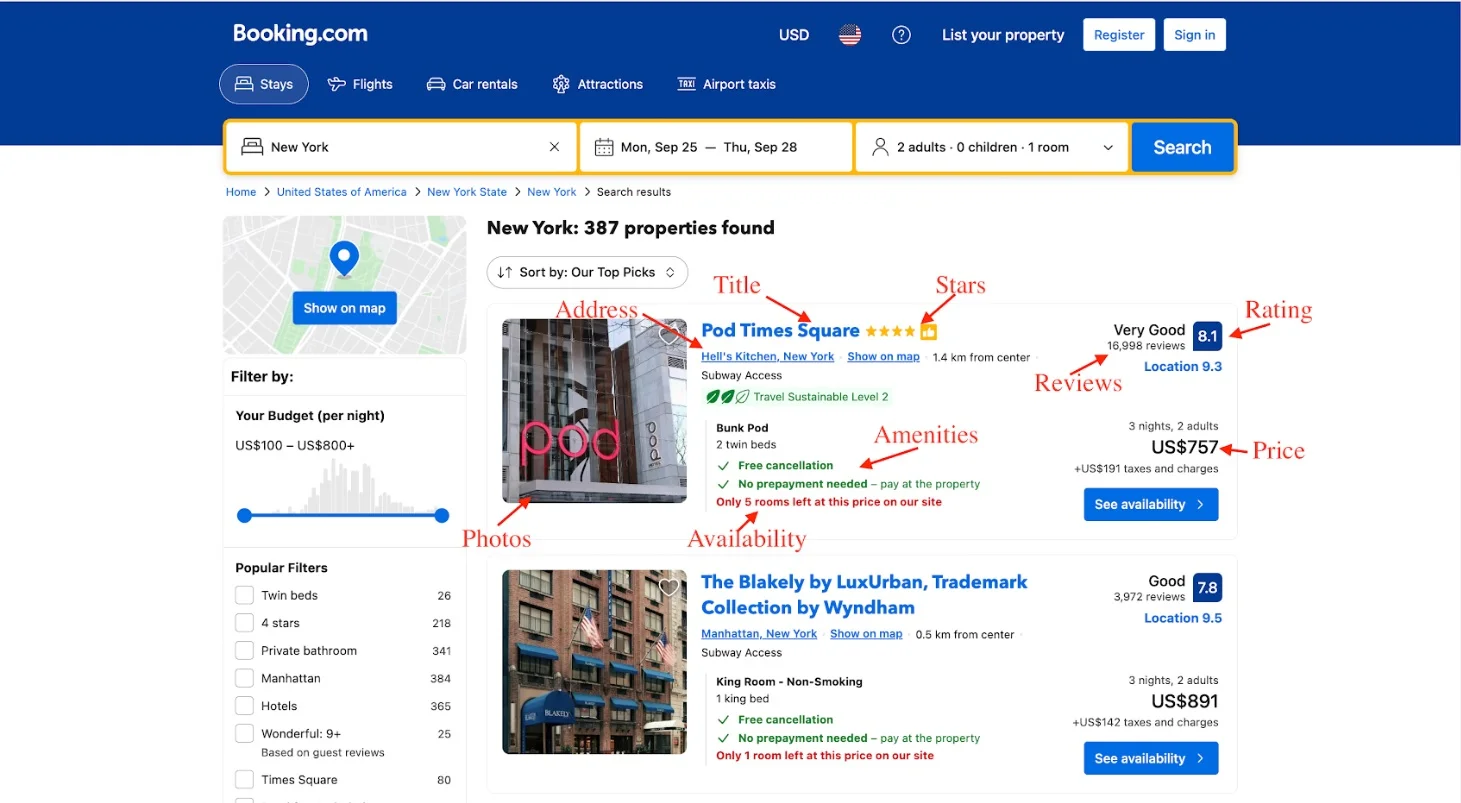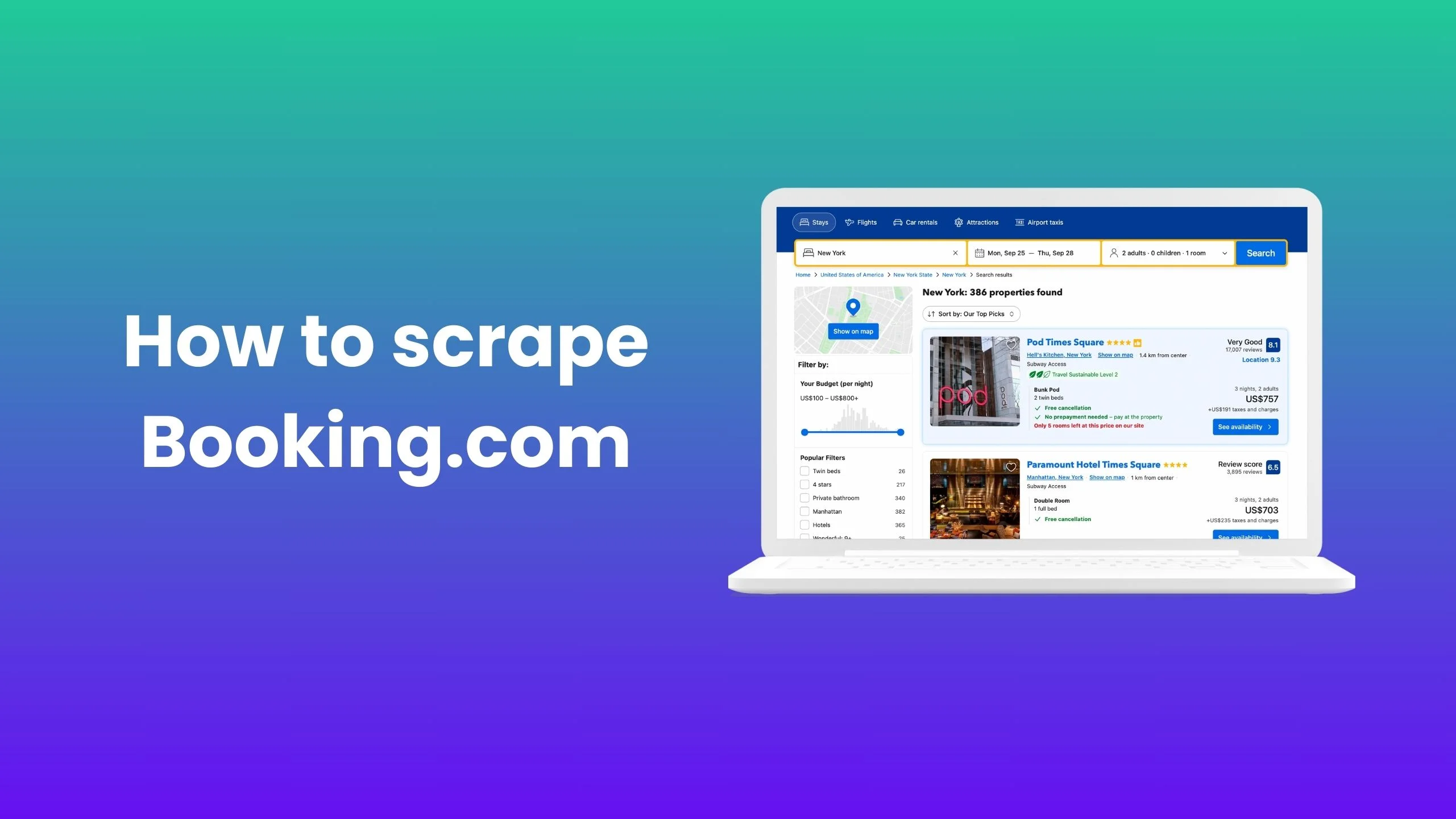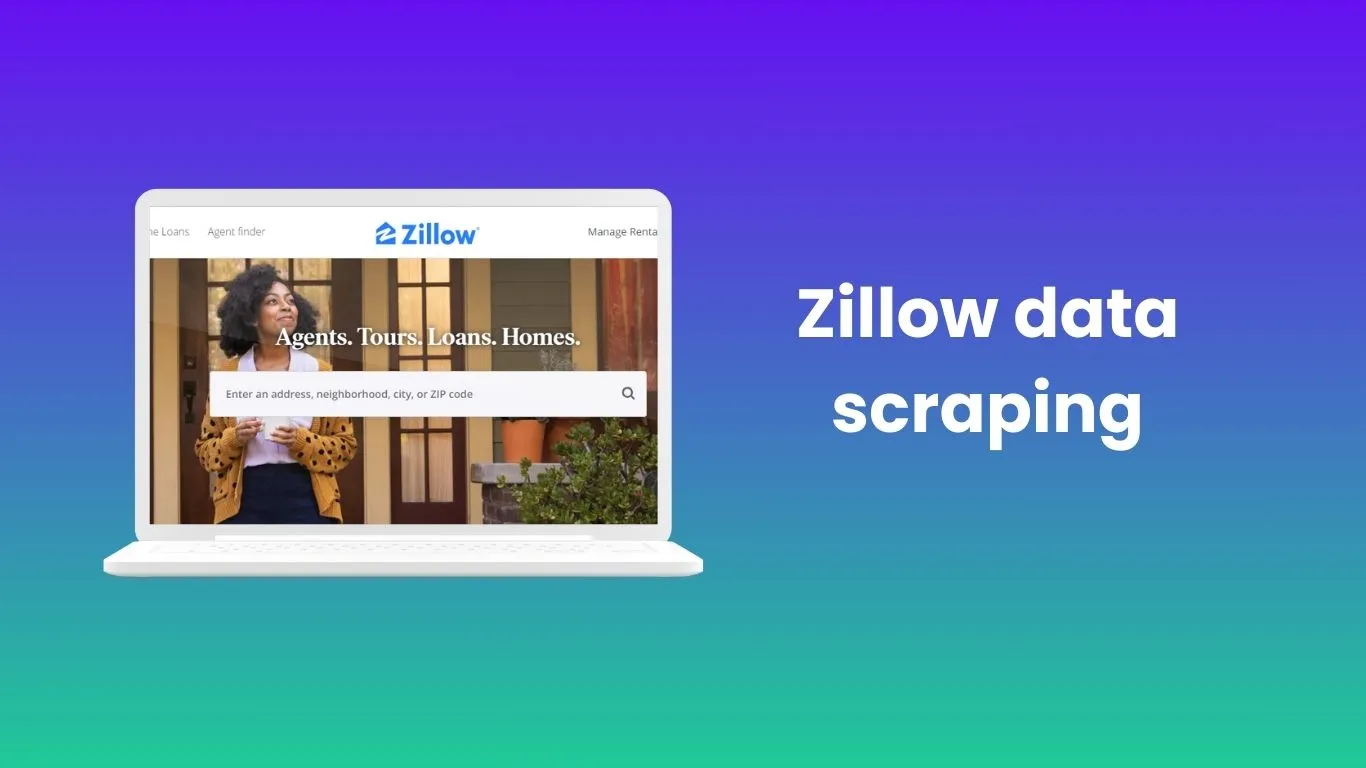Have you noticed how the hotel business has been buzzing more than ever? And this introduces a few challenges for those entrepreneurs who want to thrive in this niche. For those who’ve been in the game for a while, it’s getting trickier to keep those profit margins healthy. And what about the new players in the market? Well, finding a spot to shine is no walk in the park either.
Thus, making decisions based on gut feelings just won’t cut it. These days, it’s all about the data, which is abundant at Booking.com. Come July 2023, Booking.com was the go-to destination for travelers worldwide. Think about it: over 28 million places to stay, all listed in one place.
So, if you’re into scraping booking stores, Booking.com should be on top of your list. Read on how to maximize the results of your data harvesting activities.
What does scraping Booking.com mean?
In simpler terms, Booking.com scraping is the process of extracting data from the website. This could be anything from hotel prices, guest reviews, room availability, to those all-important star ratings. The insights you get let you peek into the trends, compare prices, and understand what travelers are really after.
Data scraping is all about automation. Instead of manually checking every listing on the platform, you use a booking scraper. It helps you gather the bits of information you need while saving heaps of time and effort.
What kind of data can be parsed from Booking.com?
You can fetch a diverse range of data points from Booking.com. For instance, you may access:
- Hotel titles & addresses to figure out where your competitors are located.
- Hotel prices to peek at room prices across different dates and seasons.
- Guest reviews to get a pulse on what guests loved, what they didn’t, and areas you might need to spruce up.
- Room availability to make educated decisions on a renovation or promotional offer.
- Star ratings to measure up where you stand in the eyes of travelers.
- Amenities to see what perks might be worth adding to your own establishment.
- Photos & descriptions to get an idea of how other hotels present themselves.

Advantages of scraping data from Booking.com
We bet you’ll agree that staying ahead in the competitive hotel industry requires more than just offering great service. In addition to it, you should understand the market, optimize operations, and position your hotel or business strategically. So, if you already run a hotel or are about to launch one, using a booking com scraper will offer a lot of advantages.
Boost your revenue
Would you like to be the first to know when your competitors are offering deals or what their peak seasons are? That’s easy with data scraping. As you tap into this data, you can craft your own irresistible offers to ensure guests choose your establishment over others. As a result, you can expect to have a significant uptick in your bookings and revenue.
Streamline your operations
Ever wondered what amenities guests truly care about or which services they rarely use? With Booking.com scraping, you’ll get insights into these preferences. They will enable you to allocate resources more efficiently and enhance guest satisfaction.
Win a better position in the market
In such a highly competitive business domain, standing out can be tough. But with insights from Booking.com, you’ll be able to identify gaps in the market or unique selling points that competitors might be overlooking. Who knows, maybe decisions based on the collected data will help you position your hotel as a top choice for travelers.

Legal and ethical considerations of Booking.com scraping
First and foremost, scraping Booking.com is on solid legal ground. Because the data you’re extracting is available to anyone with an internet connection. So, when you’re pulling data from Booking.com, you’re simply accessing information that’s already out there for the world to see.
However, just because you can scrape doesn’t mean you should break bad. Scrape this platform at a measured, considerate pace. This way, you reduce the risk of overloading the website’s servers and stay on the ethical side.
Also, mind how you use the data afterward. Always ensure your use of the scraped information aligns with local laws and regulations.
Effective scraping strategies for Booking.com
Business aspects of effective Booking.com scraping
Before we delve into the technical side of data booking scraping, let’s look at the strategic steps your business should take to ensure you get maximum value out of your hotel data scraping effort.
- Clearly pinpoint what you aim to achieve. Are you looking to optimize pricing, understand customer preferences, or gauge market trends? This will help you ensure the data you extract is relevant and actionable.
- Prioritize quality over quantity. Instead of scraping everything, focus on quality. Extract data that aligns with your business goals to ensure meaningful insights.
- Stay updated. Prices, availability, and guest preferences change frequently. Regularly update your scraping strategy to capture the most recent data.
- Analyze and act. Data alone won’t drive results. So, invest time in analyzing it. Look for patterns, gaps, and opportunities. Then, translate these insights into actionable strategies.
- Collaborate. Data-driven insights are valuable not just for top management but for all stakeholders. Share your findings with your team, from marketing to operations, to build a cohesive strategy that benefits the entire business.
Technical aspects of Booking.com scraping with .Net
At Nannostomus, we use the .Net framework. It’s robust and versatile, so we believe it’s an ideal choice for web scraping tasks.
The steps you’ll need to take to fetch different data points from Booking.com may vary. In this article, we’ll show you how to collect hotel names from search results.
- Set up your environment. Install Visual Studio, ensuring you have the .Net Core or .Net 5+ SDK. Create a new Console App project.
- Install necessary packages. Use NuGet Package Manager to install HtmlAgilityPack, a popular .Net library for web scraping.
- Initialize the Web Client. Create an instance of WebClient to fetch the webpage content.
using (WebClient client = new WebClient())
{
string html = client.DownloadString("https://www.booking.com/search.html?...");
}
- Parse the HTML content. Load the HTML content into an HtmlDocument object from the HtmlAgilityPack.
HtmlDocument doc = new HtmlDocument();
doc.LoadHtml(html);
- Extract hotel names. Use XPath queries to target the specific HTML elements containing hotel names. The exact XPath might vary, but it typically targets elements with specific class names or attributes.
foreach (HtmlNode hotelNode in doc.DocumentNode.SelectNodes("//span[@class='specific-class-name']"))
{
string hotelName = hotelNode.InnerText.Trim();
Console.WriteLine(hotelName);
}
- Booking.com often paginates its listings. To scrape multiple pages, identify the pagination element and loop through the pages, repeating the scraping process for each.
- Implement try-catch blocks to handle potential errors, such as network issues or changes in the website structure.
- Introduce delays using Thread.Sleep(milliseconds) between requests to avoid overloading the Booking.com servers and to mimic human-like access.
- As you extract hotel names, consider storing them in a structured format, such as a CSV file or a database, for easy analysis and retrieval.
- Regularly review and update your scraping code to accommodate any changes in Booking.com’s HTML structure.
💡 You'll extract raw data from Booking.com. Consider data conversion, cleaning, and verification services to obtain high-quality information ready for further analysis.
Conclusion
We’ve just shown you a little fraction of what you can do with Booking.com scraping. And, as you have already grasped, extracting data from this platform requires both technical prowess and strategic insight.
As an experienced data scraping company, Nannostomus offers technical expertise for your business. We understand the nuances of the hotel industry, so we deliver tailored solutions to ensure you receive data that aligns with your business goals. Reach out to Nannostomus today to discuss how Nannostomus will empower your business with relevant, actionable insights from Booking.com.




